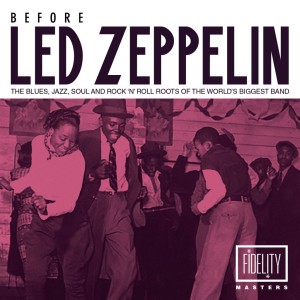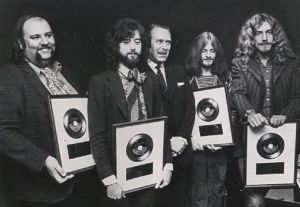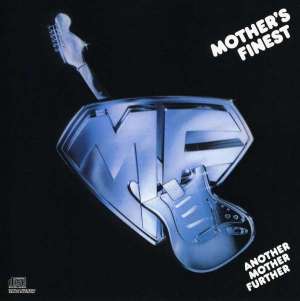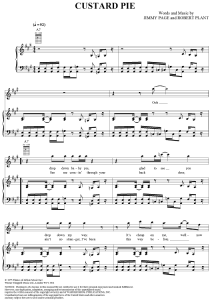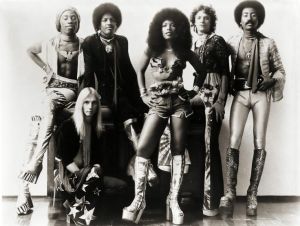It’s always fascinated me that Led Zeppelin’s music could be so far ahead of it’s time, and at the same time owe such a monumental debt to the music that came before it. Over the years it’s come to light that a significant portion of Zeppelin’s catalog is comprised of songs pieced together out of bits of this or that blues song, and the band has been called on to pay that debt– literally, several times over the decades. For those unaware of this ugly aspect of the Zeppelin legacy, here’s a quick rundown of Zep’s previous brushes with the law over copyright infringement:
“Dazed & Confused”: a re-written version of a song by Jake Holmes, an American folk singer that Jimmy Page’s previous band the Yardbirds played with in 1967. Page first reworked the song for the Yardbirds, altering the melody and the lyrics, but eventually recorded a version for Led Zeppelin’s first album, without crediting Holmes. Holmes finally sued Page for copyright infringement in 2010, and the songwriting credits now read “Page; inspired by Jake Holmes”. Zeppelin still holds a separate copyright for their version of the song.
“Bring It On Home”: The intro is a tribute to “Bring It On Home” by Sonny Boy Williamson, written by Willie Dixon, while the middle section was written by Jimmy Page and Robert Plant. The entire song was originally credited to Page and Plant, but was corrected in 1972 to include Dixon’s name, after Arc Music, Dixon’s publisher, brought a lawsuit against Zeppelin, which was settled out of court.
“Whole Lotta Love”: Zeppelin was sued over this song in 1985, and again the lawsuit was settled out of court. Lyrically, the song is based around “You Need Love”, written by Willie Dixon; Dixon is now included in the songwriting credit, and once again the case was settled out of court.
“How Many More Times”: Originally credited to Page, Jones, and Bonham. Since 1993, the song has included a credit for Chester Burnett (Howlin’ Wolf), whose “How Many More Years” shares a lot of lyrics with the Zep tune. Burnett’s estate settled out of court and demanded several credits in the Zeppelin catalog be corrected, including “The Lemon Song”, which includes several elements of Burnett’s “Killing Floor.” (That song’s “lemon” lyrics are taken from another old blues song: Robert Johnson’s “Travelling Riverside Blues.”) “How Many More Times” also includes uncredited passages from “The Hunter”, written by Jones, Cropper, Dunn, Jackson, & Wells in 1967 and recorded by Albert King. No legal action was ever taken over this.
“Hats Off To (Roy) Harper” is a sort of medley made up of pieces of blues songs and lyrics, including “Shake ‘Em on Down” by Bukka White, to name just one. It’s unclear if Zep claimed ever profited from this amalgam of established, legally held songs; the song’s credits read “Trad. Arrangement: Charles Obscure”. Mr. Obscure is none other than Jimmy Page. So, ya, they probably did.
“In My Time of Dying”: A tradition gospel song in the public domain and with no legal authorship, the song is nonetheless credited to all four members of Zeppelin. “…Dying” is a prime example of Zeppelin’s overall arrogance, in that it claims sole authorship (and ownership) of a song in the public domain to the tune of millions of dollars. A ballsy move; at least there were no actual copyright holders getting screwed.
In Zep’s defense, I’m gonna quote some experts who make a very valid argument in the band’s favor:
Noted blues author and producer Robert Palmer has said “It is the custom, in blues music, for a singer to borrow verses from contemporary sources, both oral and recorded, add his own tune and/or arrangement, and call the song his own”.
Folklorist Carl Lindahl refers to the recycling of lyrics in songs as “floating lyrics”. He defines it within the folk-music tradition as “lines that have circulated so long in folk communities that tradition-steeped singers call them instantly to mind and rearrange them constantly, and often unconsciously, to suit their personal and community aesthetics”.
In this context, Zep’s shameless pilfering of the blues can be viewed as a musically valid form of participation in ages-old musical tradition. The problem is, the original writers of much of this material and the fledgling publishing companies that administered royalties ‘back in the day’ earned a mere pittance from their work when compared to Led Zeppelin’s earnings during the album era. The music business didn’t really become The Music Business until the mid-to-late 60’s… right about the time Led Zeppelin came along. Zep’s claiming owner/authorship of material that was generally accepted as ‘community property’ places the band well outside of Palmer and Lindahl’s safety zone.
To me, the single most fascinating chapter in this sordid saga involves a band from Atlanta, GA called Mother’s Finest. MF were an unlikely (at least in the mid-70’s) combination of hard rock and hard funk. Despite touring as openers for Aerosmith, AC/DC, Ted Nugent, and Black (!) Sabbath, and their excellent Tom Werman-produced third album, ‘Another Mother Further’ (Epic 1977), the band never broke through commercially; MF’s music was too white for black audiences and too black for white audiences. ‘Another Mother Further’ began with a version of The Miracles 1963 Motown hit “Mickey’s Monkey”, and it kicks major ass, but… hold on a second…
The Mother’s Finest version of “Mickey’s Monkey” is a cleverly-assembled amalgam of Led Zeppelin’s “Custard Pie” and Smokey Robinson and The Miracles’ “Mickey’s Monkey”, with “Custard” serving as the backing track and The Miracles’ lyrics arranged on top. The mash-up works well musically, but also makes an important point. By 1976-77, Led Zeppelin had largely gotten away with stealing licks and lyrics from blues artists at will, plundering the rich history of black music, creating ‘new’ works from them, and making millions in the process. Mother’s Finest was clearly looking to provoke, to challenge; their blatant steal of the Zep song, performed note-for-note, and identical in key, tempo and arrangement, completely uncredited to Zeppelin, was a response to Zeppelin’s blatant theft of black music. Here was a band that identified as Black (their 2nd album contained a song entitled “Niggizz Can’t Sang Rock ‘n’ Roll”) stealing from a mega-band that arguably built its career on the uncredited appropriation of black music…
The tables had been turned. The question so provocatively posed by Mother’s Finest was: How would Led Zeppelin respond to their music being stolen by black musicians? An absolutely brilliant move, ingenious in it’s construction, and, imho, 100% punk rock. It’s now 35 years later, and Led Zeppelin never challenged MF on their use of “Custard Pie”; no legal action has ever been taken. Zeppelin’s non-response can be viewed several different ways: as an admission of guilt, an atonement for past sins, or as an apology. Make of it what you will.
In the present day, Led Zeppelin is vehemently refuting claims that their magnum opus, “Stairway to Heaven”, was stolen from Spirit; the legal action is moving forward, and gaining momentum daily. A cursory listen to audio samples of both songs reveals a stunning similarity… Is it any wonder?
